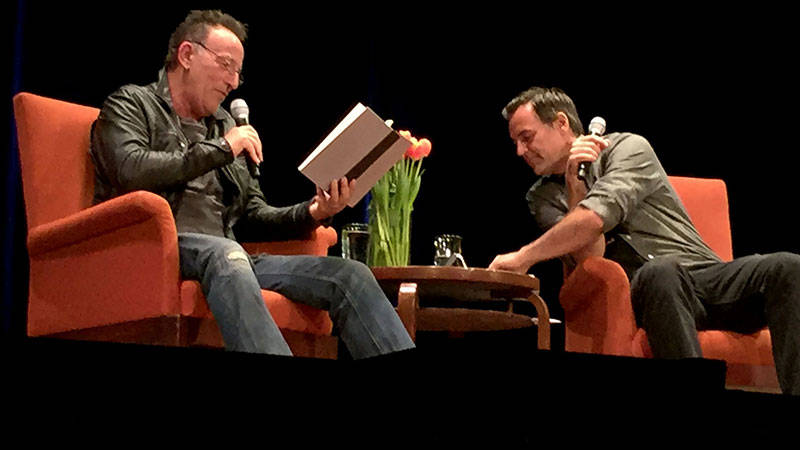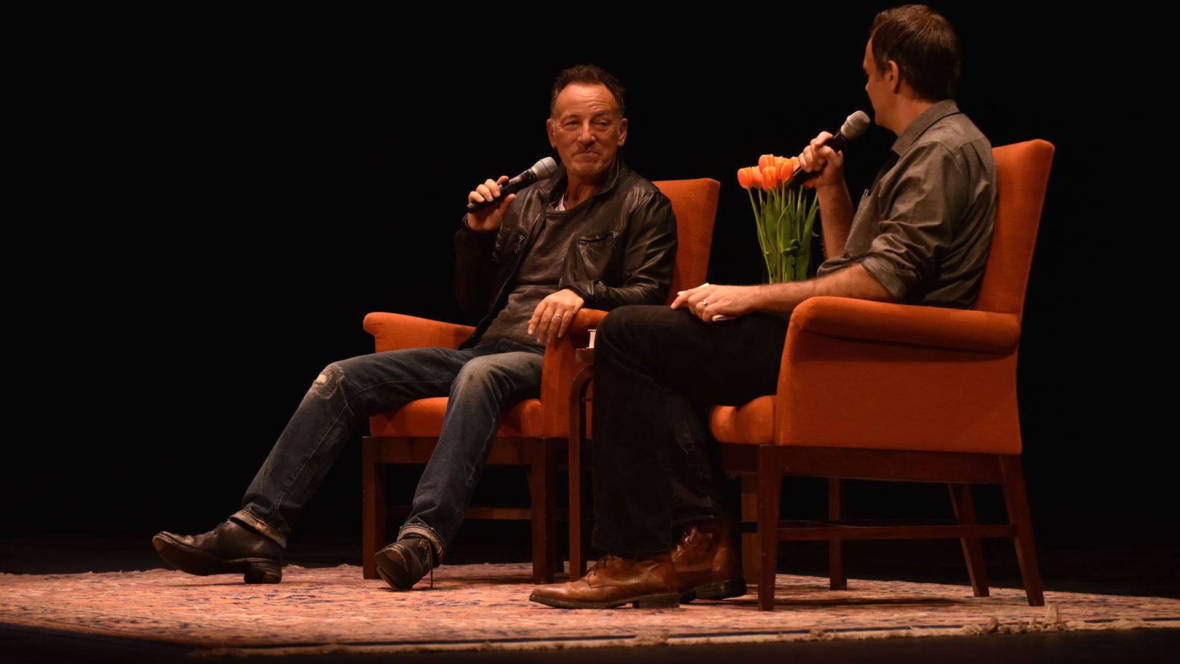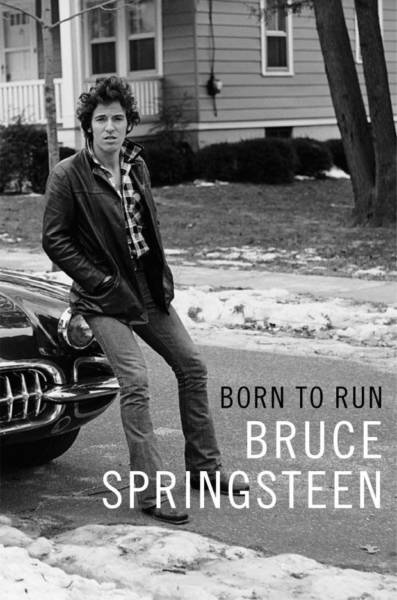Outside the Nourse Theater before Bruce Springsteen’s appearance Wednesday night, one could tell that this was no ordinary City Arts & Lectures event. Dozens of hopeful fans paced the sidewalk, looking for tickets. A crowd of 30 or 40 people huddled at the back driveway, awaiting his arrival. A buzz was in the air.
Here was a chance, after all, to hear one of America’s great songwriters offer more than his famous songs and the patter between them. In San Francisco to promote Born to Run, his No. 1-selling memoir, the Boss sat down in City Arts & Lectures’ familiar orange chair to read excerpts from the book and to get personal with interviewer Dan Stone in front of a sellout crowd.

Between discussing his literary inspirations (Dostoyevsky, James M. Cain, Chekov, Mr. S by Frank Sinatra’s valet) and the current artists he’s excited about now (Kendrick Lamar), Springsteen revealed much about his early life, his battles with depression, and his family. Read excerpts below, and listen to the full broadcast on KQED radio on Sunday, Oct. 16, at 1pm. (It repeats on Tuesday, Oct. 18, at 8pm, and Wednesday, Oct. 19, at 3am.)
On playing in bars, and how it prepared him for his current, four-hour shows:
“Well, I played for five hours a night at a bar. So what I’m doin’ now feels easy. But you know, you learned everything in the bars: you had to please an audience sight unseen, you had hours upon hours upon hours to work on your craft; you got used to being ignored, so that didn’t bother you too much. It was just a place where you could learn your business. I also enjoyed the social aspect of it, though I wasn’t a drinker at the time. But once we got pretty good at it, we’d get 150 people a night, three nights a week. That means you made $150 a night, there were five of you, so you made $30 a night. But you made $90 a week! And anybody who couldn’t live on $90 a week in 1968 just didn’t know what they were doing. So life was pretty good. I just remember it felt free as could be.”
On how it felt to be unrecognized:
“Those days, not only did things happen incredibly slow, if at all, but you were millions of miles from anywhere anyone would ever see you, or you would be discovered. An hour and a half out of New York was like Timbuktu. So we worked for years – years – in that neck of the woods, and nothing ever happened. Nothing ever happened. We drew thousands of people to shows — nothing. A group drawing 5,000 people to a concert with no record album wouldn’t last three seconds out there right now, before somebody came and saw ’em.




